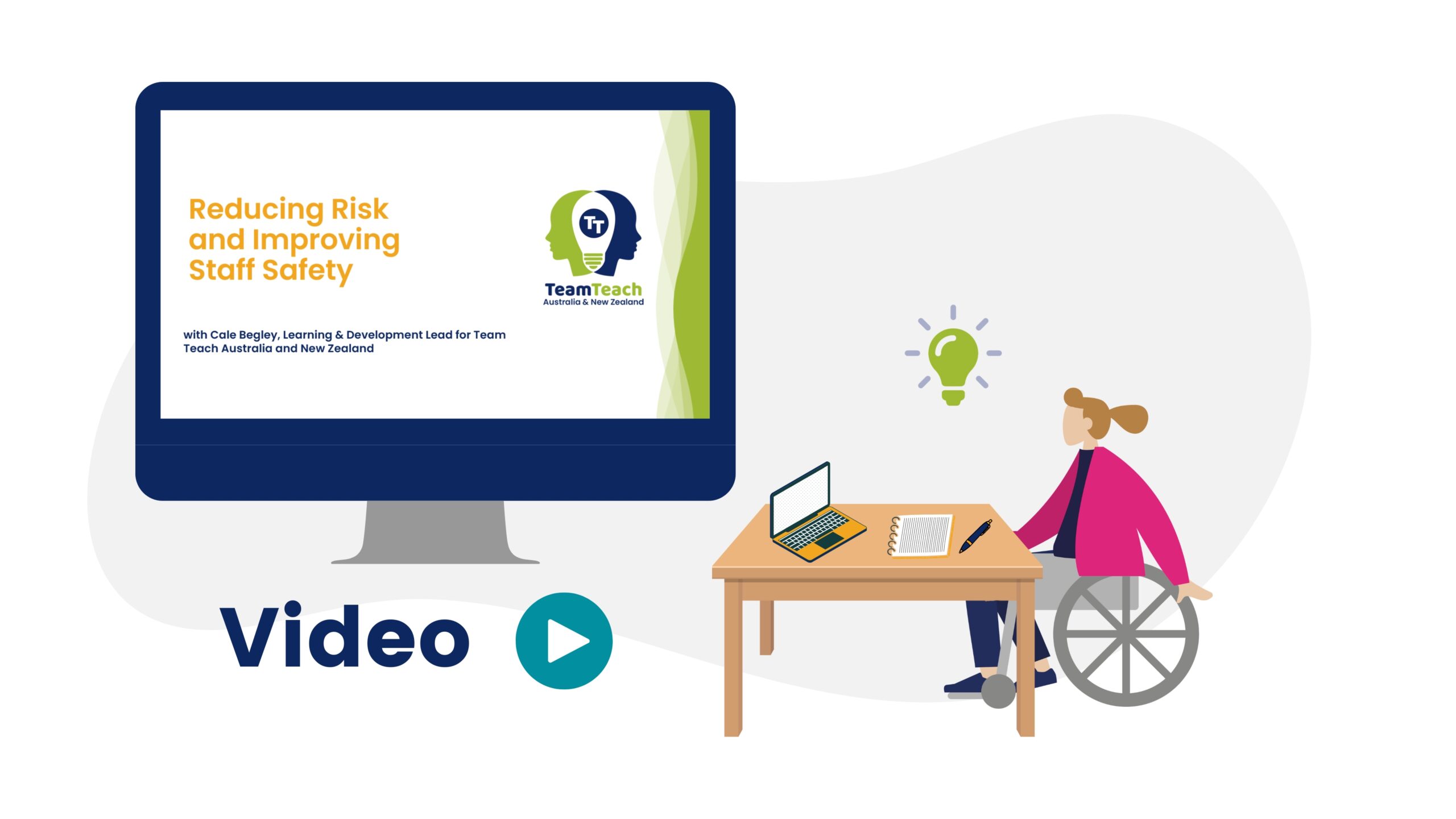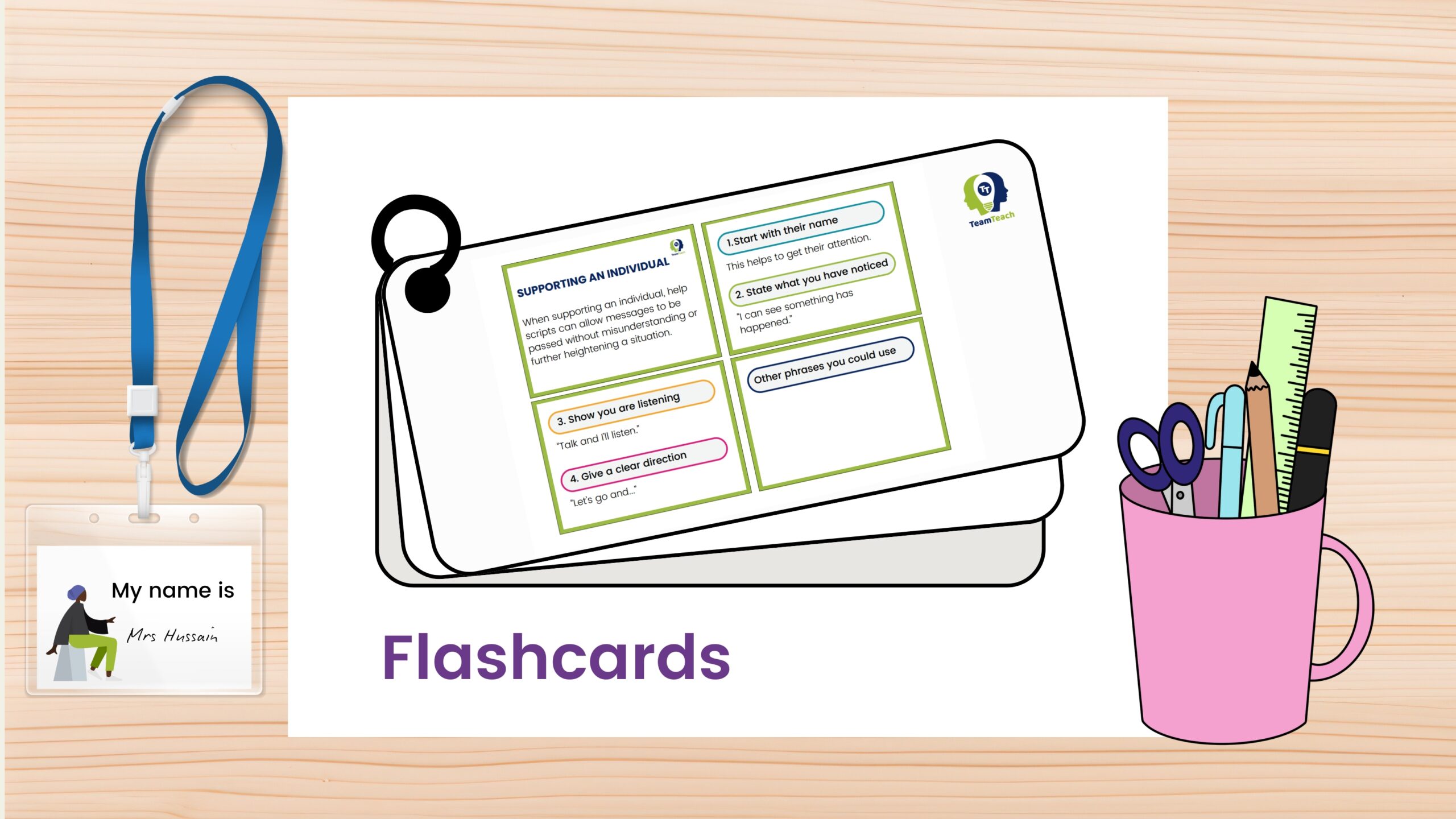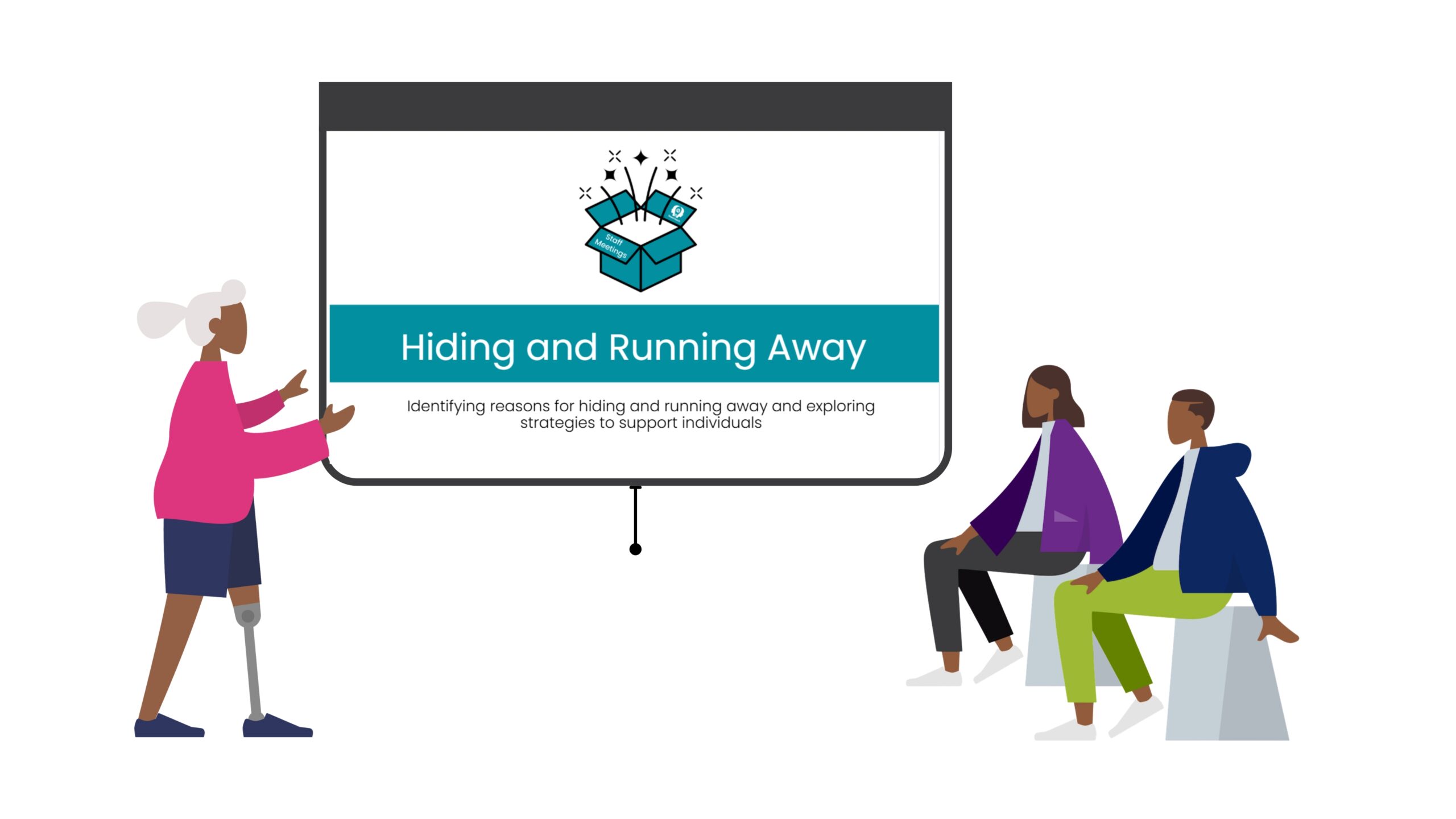Ways to keep staff and individuals safe, and reduce risk for all.
Reducing Risk and Improving Staff Safety


Ways to keep staff and individuals safe, and reduce risk for all.

At-a-glance reminders of Team Teach principles in real-life scenarios.

Staff Meeting in a Box: understanding hiding and running away in children and young people.

Exploring ways to reduce risk and support individuals in crisis.

Anticipate what might happen next and spot chances to respond differently.

Understanding vaping and exploring strategies to reduce conflict.

Anticipate what might happen next and spot chances to respond differently.

Helping families understand and support their child’s angry behaviour.

Anticipate what might happen next and spot chances to respond differently.

Ways to talk to children, young people and adults about physical interventions.

Guides and templates to facilitate conversations around physical interventions.

Designing and using calm rooms and quiet spaces to promote self-regulation.

Safely transferring the support of an individual to another colleague.

Staff Meeting in a Box: how to understand and address rudeness.

How to reduce conflict for individuals living in group or shared accommodation.